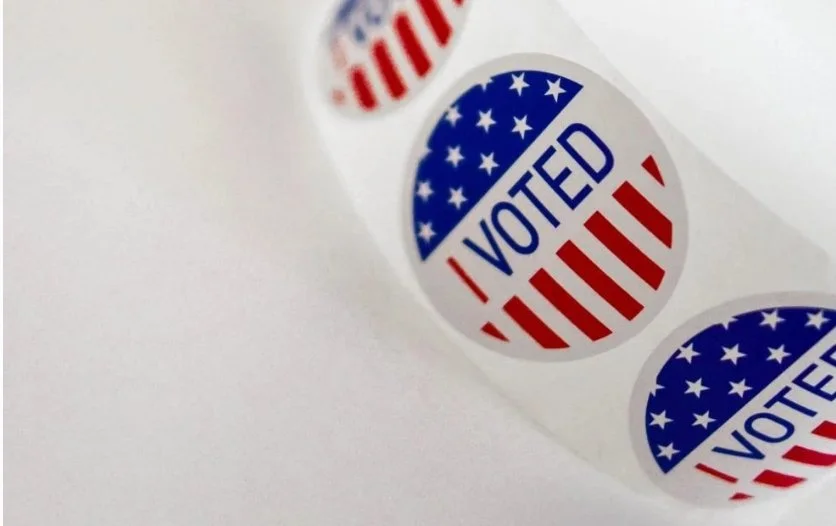Amidst the COVID-19 pandemic, the federal government asked social media companies to take down misinformation about the spread of coronavirus and mask and vaccine efficacy. The Supreme Court is now considering a legal challenge to the constitutionality of these informal requests, known as government “jawboning.”
NYU Law News
Social media apps regularly present teens with algorithmically selected content often described as “for you,” suggesting, by implication, that the curated content is not just “for you” but also “about you” – a mirror reflecting important signals about the person you are.
The Conversation
A large majority of Americans see the freedom of the press as highly important to the well-being of society. But many express concerns about potential restrictions on press freedoms in the United States – and say that political and financial interests already have a lot of influence on news organizations.
Pew Research Center
Most Americans are worried about inaccuracies and misinformation being reported during the 2024 election, according to a poll released Wednesday.
The Hill
Three experts discussed the importance of AI regulation and combating misinformation in “AI and Healthcare,” the fourth event of the “Conversations on AI and our Data-Driven Society” series.
Brown University Herald
It’s the age of generative artificial intelligence, but while the technology races ahead, large cultural questions about how to maintain trust in AI remain unanswered. Adobe surveyed more than 2,000 people about misinformation and their trust in GenAI.
Fast Company
The Integrity Project gathers a prestigious group of elections experts for an important virtual conversation May 31, and invites the public to join in.
The Integrity Project
It's natural for children to be curious about the latest popular AI programs. As these tools become more widespread, it's important to talk with kids about responsible and appropriate tech use. These tips can help your family explore and learn about AI together.
Common Sense Media
With free bars of soap and lots of patience, volunteers with a nonprofit in Taiwan recruit students to attend free media literacy classes. Initially aimed at seniors, Fake News Cleaner now offers programs to all ages, including elementary school and university students.
Psychology Today
Social media plays a crucial role in Americans’ news consumption. Half of all U.S. adults say they at least sometimes get news there, according to a 2023 Pew Research Center survey.
Pew Research Center
As we browse the news, it's easy to become desensitized to awful events. Writer Amanda Ruggeri explores the psychology, and the steps you can take to avoid it happening.
BBC
The Secretary of State and a voter registration expert in Texas have refuted widespread disinformation spread by YouTubers and anonymous social media accounts this week.
The Center Square
The United States and Italy agreed on Wednesday to coordinate efforts to counter the spread of misinformation and fake news articles by foreign governments.
Reuters
After a man stabbed and killed six people at a mall in Sydney, Australia, false rumors about the identity of the attacker spread online along with antisemitic comments. Let’s look at the facts.
News Literacy Project/RumorGuard
In the digital age, the proliferation of disinformation has emerged as a formidable threat, infiltrating online spaces and perpetuating hate while posing grave risks to our population, especially certain groups.
Forbes
In the era of TikTok, self-diagnosis of mental health and developmental conditions, including autism spectrum disorder (ASD), is on the rise among young people. Some posts include people sharing reasons they believe their self-diagnosis is valid, while others contain mental health professionals stressing the importance of getting diagnosed by a provider.
Healthline
Millions of people have watched Mike Hughes die. It happened on February 22, 2020, not far from Highway 247 near the Mojave Desert city of Barstow, California. A homemade rocket ship with Hughes strapped in it took off from a launching pad mounted on a truck.
The New Yorker
How many times has it happened? You’re on your computer, searching for a particular article, a hard-to-find fact, or a story you vaguely remember, and just when you seem to have discovered the exact right thing, a paywall descends
The Atlantic
No facet of our lives is untouched by media. Our public spaces are infused with an unending cascade of media messages promoting an array of corporations, causes, candidates, events, and teams. Social media has reshaped our culture, even for those who never log on. And AI is making it easier than ever before for anyone to create content that feels real — even when it’s not.
Carnegie Corporation of New York
The tech industry has a new trend: adopting “transparency labels” modeled after the iconic Nutrition Facts panel found on food packaging. In 2020, Apple introduced “Privacy Labels” aimed at disclosing how apps handle user data. And that was just the beginning.
TIME




















